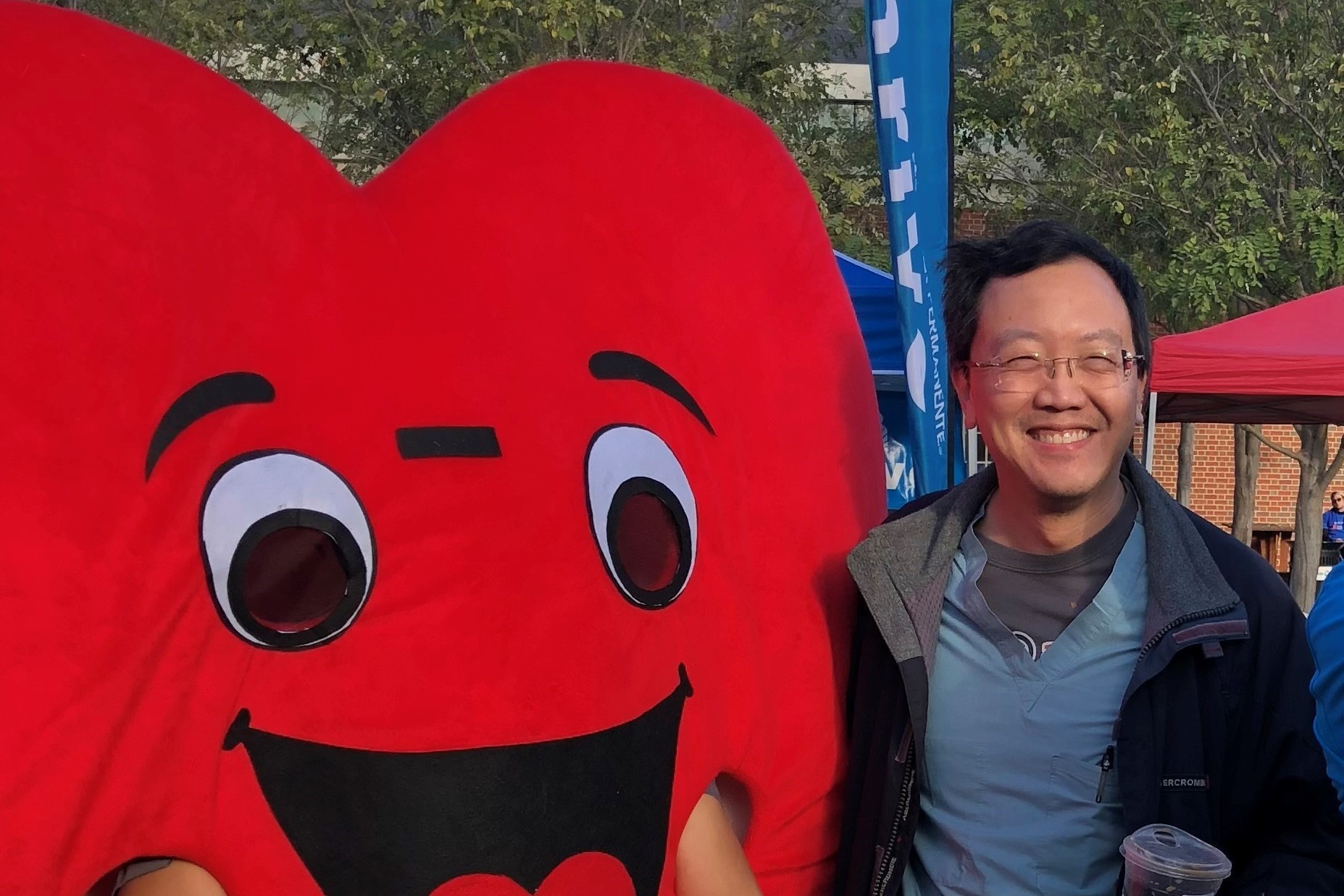Heart-Healthy Wisdom from a Cardiologist
Dr. John G. Yeung, a cardiologist for the past 15 years, shares practical advice on maintaining a healthy heart.

Eating well and getting enough exercise isn’t easy in a world full of busy schedules, demanding careers, and an abundance of unhealthy but convenient and tempting food choices.
It’s something that Dr. John G. Yeung, a Touro University California Doctor of Osteopathic Medicine graduate and cardiologist at Kaiser in Modesto/Stockton, knows very well. With long workdays and a family, Yeung knows how hard it is to do. Here is some of the practical advice that has worked for him and his patients to improve cardiovascular health.
Evolving Dietary Choices: From Low-Fat to Plant-Based
Traditional advice used to be centered around low-fat and low-cholesterol diets, but now the emphasis is a plant-based diet, according to Yeung. More vegetables, beans, whole grains, and fruit in a diet are the goal, but you don’t need to change your diet overnight.
“I recommend to my patients to try and have just one or two meals a day that are plant-based,” says Yeung. “Have a salad or soup (or even just something a little healthier than usual) to start.”
Exercise: Start Slow, Stay Consistent
Busy schedules make it tough to find time to exercise, so Yeung encourages people to have a realistic approach to exercise by starting slow with frequent, smaller workouts during the week.
By starting with 15 to 20-minute sessions, two or three times a week, Yeung emphasizes the benefits of consistency over intensity. Besides avoiding injuries, smaller workouts are less likely to get skipped. As a working physician, Yeung found that using a treadmill at home got him to exercise more frequently than trying to get to the gym.
“For people who have more arthritic issues, low back, or joint pain, I recommend non-weight-bearing exercises like bicycling, swimming, or something low impact,” says Yeung. “Yoga, stretching, even light weights or calisthenics can help keep you and your heart healthy.”
It's Never Too Late to Prioritize Your Health
Some damage to your body can’t be undone, like a lifetime of smoking or the wear and tear of just getting old yet cultivating a heart-healthy lifestyle still creates positive improvements. Yeung says that just stopping smoking for three years dramatically reduces your risk of a heart attack. Yeung has had patients make dramatic improvements in their lives in a short amount of time, but for most, it just takes slow and steady work to be as consistent as possible.
“It’s never too late to start making positive changes for a healthier, happier life,” says Yeung.
